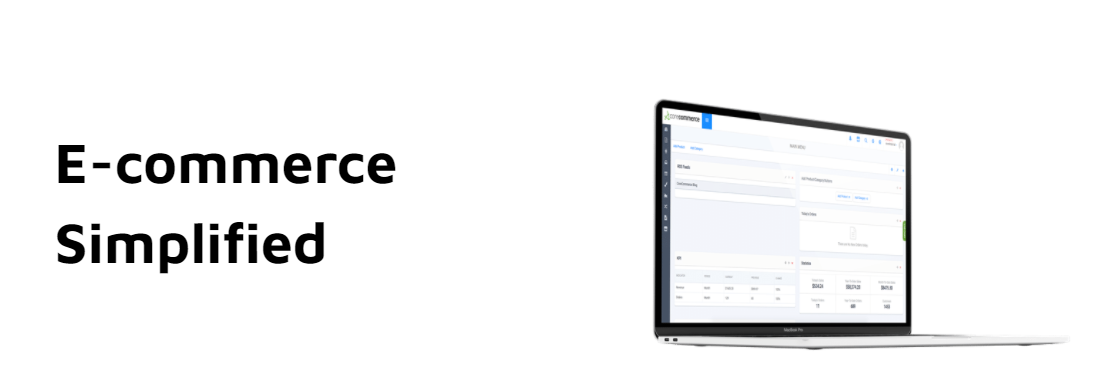More and more business owners prefer to take their stores online, necessitating internet buying. Because there are so many various webshop solutions on the market, entrepreneurs are frequently perplexed as to which one is ideal for them. The first step is to select a platform for presenting and selling your goods or services.
There is no such thing as a one-size-fits-all solution; platforms with various features will appeal to different types of users. In the end, the decision is based on your specific needs; however, these are the six most popular Omnichannel eCommerce platforms.
1. BigCommerce

Because of its dependable support and user guides, BigCommerce is a formidable eCommerce building program that many businesses use. With it, you can chat or live chat with experts to learn more about Google Analytics. BigCommerce also provides ready-made templates for building a new website and lets you combine your site with Instagram’s and Amazon’s links.
In addition, it offers several payment options and addresses personalization, automatic order processing, and other essential features. However, the large range of functionality can make the process of setting up a store excessively time-consuming, but you will end up with a professional store.
2. CoreCommerce

CoreCommerce is an amazing eCommerce platform. Transparency and simplicity are the platform’s major characteristics that many users love about it. Regardless matter the payment plan you select, you will have access to all software capabilities. The product’s pricing is determined by the quantity of storage space, email, throughput, and other features.
CoreCommerce provides a 15-day trial period to evaluate its features. Product pages can be fully personalized, and blog pages can be added. This platform offers hosting and guarantees that your store will be up and running without too much problem.
3. OpenCart

OpenCart is an open-source PHP-based e-commerce platform. To effectively establish a new web store utilizing this platform, you’ll need basic coding expertise. You can install and use many OpenCart add-ons on your site. Although the program is free, you will need to pay for hosting, security certificates, and other services.
You may use SEO Pack Pro on this platform to generate meta tags. Meta tags are text snippets that describe the page content and display when users search for something and enhance rankings. NitroPack can also be used to speed up page loading times. Plus, this platform includes iBlog, which allows users to publish content.
4. Wix

Wix is a comprehensive end-to-end platform that provides easy-to-use tools for building and launching new websites. Starting an online store does not necessitate any programming knowledge. Wix is a simple website builder, even though it also offers eCommerce and commercial solutions. It’s perfect for fresh new online stores with a low pricing point, 72 free themes, and a simple setup.
The absence of customizable layouts and themes is the biggest flaw. If you go with Wix, keep in mind that you won’t be able to change the template once your website is up. To put it another way, changing or upgrading the look of a website is difficult. Therefore, you should carefully review each product page before opening a store.
5. Magento

Adobe owns Magento, an open-source platform. It has many tools, themes, and other features that you can use while building your eCommerce. This platform can take a long time to set up the website but will allow you to use many different features.
If your business is big, with hundreds or thousands of items for sale, Magento may be a powerful solution to provide a positive shopping experience for your clients. To get the most out of the Magento platform, basic programming abilities are required.
6. Shopify

Shopify makes it easy to set up your online store and doesn’t require any technical experience. You can begin inputting the product right away because all of the necessary capabilities have been implemented. Shopify is the greatest option for businesses without technical expertise who do not want to hire outside developers to build their online stores.
You only have to register and begin entering the product. You may construct your webshop entirely on your own with Shopify. Shopify is a subscription-based platform where users pay a monthly fee. The online editor, frequent system updates, and web hosting are all included in the subscription.
In addition, you only need to lease the domain if you wish to create a store on the Shopify platform. You won’t have to worry about payment disputes in your store because Shopify supports a wide range of credit cards. You may also verify that your customer and store data is secure.
Conclusion
Currently, starting an eCommerce website is simple. However, if you start with an unsuitable e-commerce platform, your business will suffer quickly.
Using an eCommerce platform is the simplest approach to creating an online store. The ones mentioned in this article have a lot of features worth checking out.
